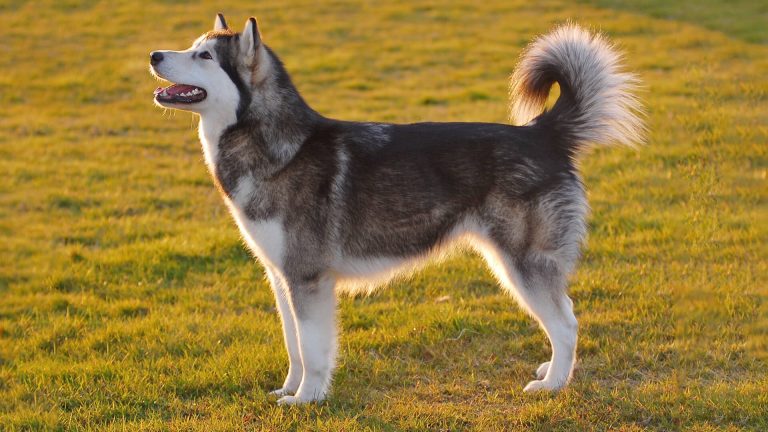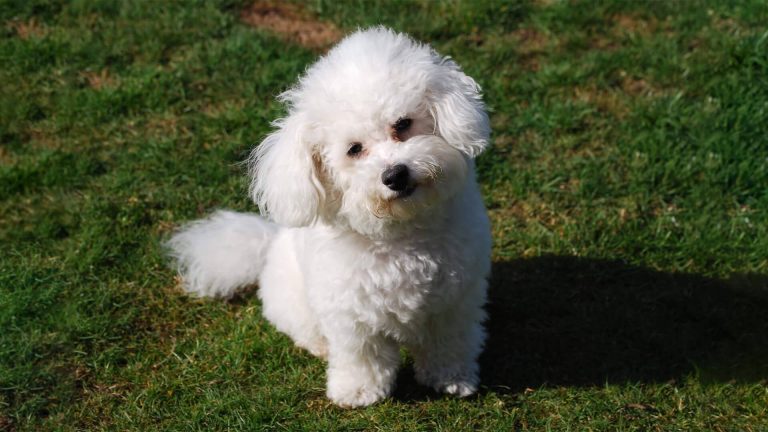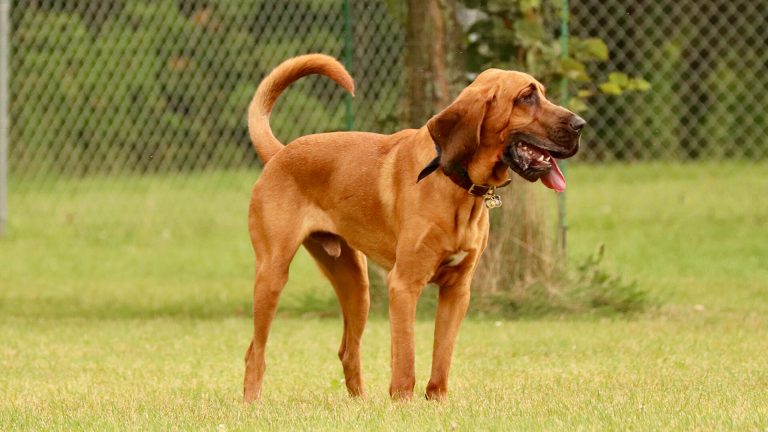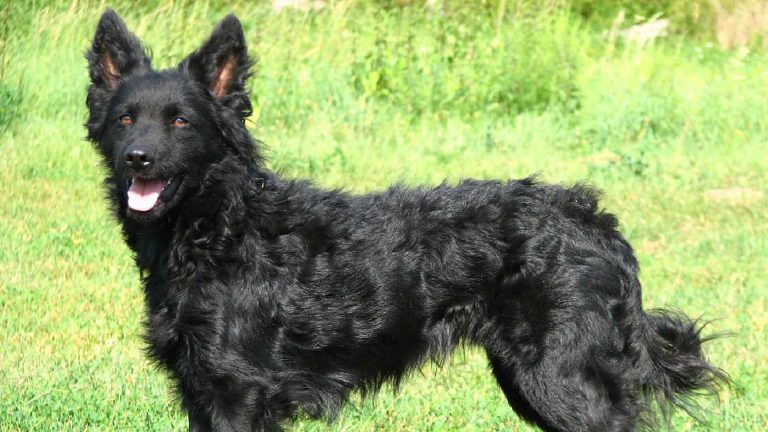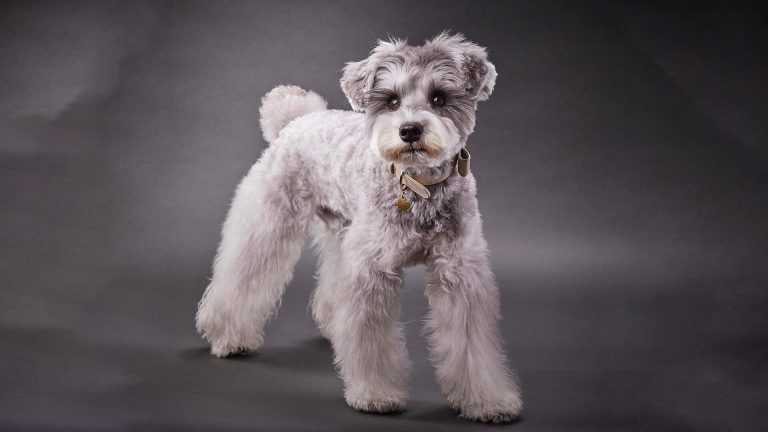The Bearded Collie, also known as the Beardie, is a breed of herding dog that originated in Scotland. The breed was developed in the 16th century when the Scottish shepherds needed a dog that was hardy, intelligent, and able to work in the harsh Scottish climate. The breed is believed to have descended from a mix of Polish Lowland Sheepdogs, Old English Sheepdogs, and other herding breeds.
The Beardie was named for its long, shaggy beard and mane, which helped to protect it from the elements while working in the fields. The breed was officially recognized by the Kennel Club (UK) in 1959 and by the American Kennel Club (AKC) in 1977. Today, the Bearded Collie is still used as a working dog on farms and ranches, but it is also popular as a companion and shows a dog.
Distinctive Features of Bearded Collie
| Breed Name | Bearded Collie |
| Lifespan | Up to 14 years |
| Size | Up to 22 inches |
| Weight | 40-60 pounds (males), 35-50 pounds (females) |
| Coat | Long, shaggy, and weather-resistant double coat |
| Color | Various colors including black, blue, brown, and fawn |
| Health risk | Moderate |
| Unique trait | Profuse facial hair, giving them a distinctive "bearded" appearance |
| Famous for | Herding livestock and being working dogs |
| Temperament | Intelligent, friendly, and energetic |
| Maintenance | High |
| Adaptability | Moderate (prefers active households and open spaces) |
| Behavior | Generally good, but supervision is recommended |
| Personality | Active, playful, and may have a high energy level |
| Social | Generally good with other dogs and pets if properly socialized |
The Bearded Collie is a medium to large breed of dog, with a distinctive appearance due to its long, shaggy coat. The breed has a double coat, with a soft, thick undercoat and a longer, coarser outer coat. The coat is typically black, blue, brown, or fawn in color, and may have white markings on the chest, paws, and face. The breed has a long, shaggy beard and mane, which gives it its name, and its long ears are often covered in hair.
The Bearded Collie is a highly energetic and active breed, with a strong herding instinct. They are intelligent, playful, and affectionate dogs that are known for their friendly and outgoing personalities. They are generally good with children and other pets but may be reserved or aloof with strangers.
The average lifespan of a Bearded Collie is 12-14 years. The breed is prone to certain health issues, such as hip dysplasia, eye problems, and skin allergies, so it is important to provide them with regular vet care and a healthy diet.
In terms of size, Bearded Collies are typically around 20-22 inches tall at the shoulder and weigh around 50-60 pounds. Males are usually slightly larger than females.
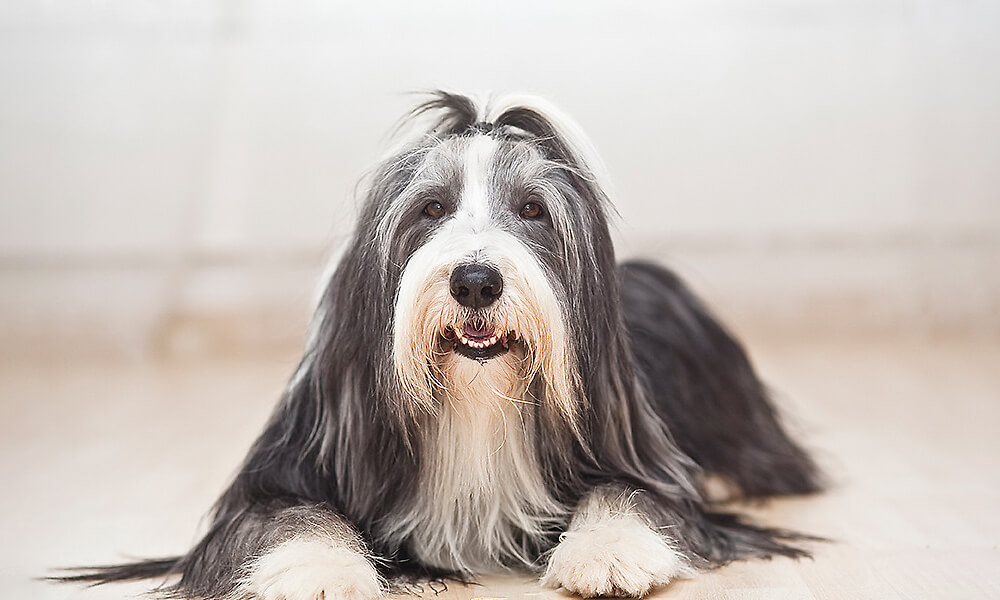
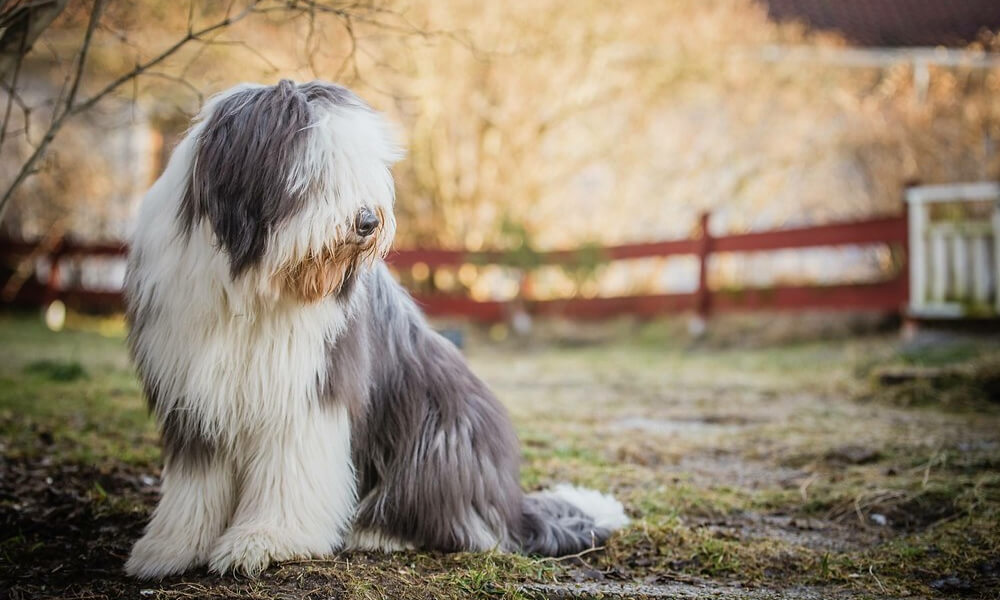
How to Take Care of Pet Bearded Collie?
Taking care of a pet Bearded Collie requires dedication and love. Their playful nature and energetic personality make them a wonderful companion. With regular grooming, exercise, and proper training, you can ensure a happy and healthy life for your Bearded Collie.
Caring for a Bearded Collie involves several important aspects to keep them happy and healthy:
How to Set Up Habitat for Pet Bearded Collie?
If you are planning to bring a Bearded Collie into your home as a pet, it is important to provide them with a safe and comfortable habitat. Here are some tips for setting up a suitable habitat for your Bearded Collie:
- Provide a secure, fenced yard: Bearded Collies are active and energetic dogs that need plenty of space to run and play. It is important to have a securely fenced yard where your dog can safely play and exercise.
- Set up a comfortable indoor living space: Inside your home, your Bearded Collie should have a designated area where it can rest and relax. This could be a crate, a dog bed, or a small room with a comfortable bed.
- Keep the coat well-groomed: Bearded Collies have a long, shaggy coat that requires regular grooming to keep it clean and healthy. Make sure to brush your dog's coat at least once a week to remove tangles and prevent matting, and consider taking them to a professional groomer for regular trims.
- Provide plenty of toys and activities: Bearded Collies are intelligent and energetic dogs that need plenty of mental and physical stimulation to stay happy and healthy. Provide them with a variety of toys and activities, such as interactive toys, balls, and chew toys, to keep them entertained.
- Keep them well-fed and hydrated: Make sure to feed your Bearded Collie a high-quality diet and provide them with fresh water at all times. Consult with your veterinarian to determine the best diet for your dog's age, size, and activity level.
What to Feed Your Pet Bearded Collie?
It is important to provide your Bearded Collie with a nutritionally balanced and appropriate diet to ensure that they stay healthy and happy. Here are some things to consider when feeding your Bearded Collie:
- Choose a high-quality commercial dog food: Look for commercial dog food that is formulated for medium to large breeds and meets the nutritional needs of your dog. Choose a brand that uses high-quality ingredients, such as real meat, vegetables, and whole grains, and avoid foods that contain fillers, by-products, and artificial additives.
- Determine the appropriate portion size: Bearded Collies are medium to large dogs with high energy levels, so they may require more food than smaller breeds. Consult with your veterinarian or refer to the feeding guidelines on the back of the dog food bag to determine the appropriate portion size for your dog's age, size, and activity level.
- Consider a raw or homemade diet: Some owners choose to feed their Bearded Collie a raw or homemade diet, which may include raw meat, vegetables, and supplements. While this type of diet can be nutritionally balanced and beneficial for some dogs, it is important to do your research and consult with a veterinarian or a professional nutritionist before making any changes to your dog's diet.
- Avoid feeding your Bearded Collie table scraps: It is generally not recommended to feed your Bearded Collie table scraps, as they may contain ingredients that are harmful or unhealthy for dogs, such as bones, fatty foods, or certain spices. Stick to a well-balanced commercial dog food or a homemade diet formulated specifically for dogs to ensure that your dog is getting all of the nutrients they need.
- Keep fresh water available at all times: In addition to a healthy diet, it is important to keep your Bearded Collie well-hydrated by providing them with fresh water at all times. Make sure to clean and refill their water bowl daily, and consider investing in a water fountain to encourage your dog to drink more water.
What to Avoid Feeding Your Pet Bearded Collie?
There are certain foods that you should avoid feeding your Bearded Collie to ensure that they stay healthy and happy. Here are some things to keep in mind:
- Avoid feeding your dog bones: While bones may seem like a natural and appropriate treatment for dogs, they can actually be very dangerous. Cooked bones are prone to splintering and can cause blockages or tears in your dog's digestive system, leading to serious health problems. It is best to avoid giving your Bearded Collie bones altogether.
- Avoid feeding your dog chocolate: Chocolate is toxic to dogs and can cause serious health problems, including vomiting, diarrhea, tremors, and even death. Be sure to keep chocolate out of reach of your Bearded Collie and any other pets in your home.
- Avoid feeding your dog grapes and raisins: Grapes and raisins can be toxic to dogs and can cause kidney failure. Even small amounts of these fruits can be dangerous, so it is best to avoid giving them to your Bearded Collie or any other pets in your home.
- Avoid feeding your dog fatty foods: Foods that are high in fat can cause pancreatitis, a serious condition that can lead to abdominal pain, vomiting, and diarrhea in dogs. Foods to avoid include bacon, sausage, and fatty cuts of meat, as well as foods that contain high levels of butter or oil.
- Avoid feeding your dog onions and garlic: Onions and garlic contain compounds that can be toxic to dogs and can cause anemia in certain breeds. These foods should be avoided in your Bearded Collie's diet.
By providing your Bearded Collie with a well-balanced and appropriate diet and avoiding these unhealthy or potentially toxic foods, you can help ensure that your dog stays healthy and happy.
Brushing, Bathing & Grooming Needs of Pet Bearded Collie
Bearded Collies are known for their long, shaggy coats, which require regular grooming to keep them clean and healthy. Here are some tips for brushing, bathing, and grooming your Bearded Collie:
- Brush your dog's coat regularly: Bearded Collies have a double coat, with a soft, thick undercoat and a longer, coarser outer coat. It is important to brush your dog's coat at least once a week to remove tangles and prevent matting, and more often during shedding season. Use a slicker brush or a comb specifically designed for long-haired breeds to gently detangle your dog's coat.
- Bathe your dog as needed: Bearded Collies generally only need to be bathed every few months, as their long coat helps to keep them clean. When it is time for a bath, use a mild dog shampoo and be sure to rinse thoroughly to avoid leaving any soap residue on the coat.
- Trim your dog's nails: It is important to keep your Bearded Collie's nails trimmed to prevent them from getting too long and causing discomfort or problems with their feet. If you are unsure how to trim your dog's nails, consider taking them to a professional groomer or asking your veterinarian for help.
- Clean your dog's ears: Bearded Collies are prone to ear infections, so it is important to check their ears regularly and clean them as needed. Use a soft, moist cloth or a commercial ear-cleaning solution to gently clean the inside of your dog's ears, being careful not to go too deep.
Health Concerns of Pet Bearded Collie
Like all breeds, Bearded Collies are prone to certain health issues. It is important to be aware of these potential health concerns and to work with your veterinarian to monitor and manage your dog's health. Some common health concerns in Bearded Collies include:
- Hip dysplasia: This is a genetic condition that occurs when the hip joint is malformed, causing pain and mobility issues. Bearded Collies are prone to hip dysplasia, so it is important to have your dog screened for this condition and to manage it with medication and/or surgery if necessary.
- Elbow dysplasia: Elbow dysplasia is not a serious concern in the Bearded Collie, but does occur often enough that breeders should be guarding against it.
- Eye problems: Bearded Collies are prone to a number of eye problems, including cataracts, glaucoma, and progressive retinal atrophy (PRA). It is important to have your dog's eyes checked regularly by a veterinarian and to manage any eye issues promptly to prevent vision loss.
- Skin allergies: Bearded Collies are prone to skin allergies, which can cause itching, redness, and inflammation. Common allergens include fleas, food, and environmental triggers, such as pollen and mold. It is important to work with your veterinarian to identify the cause of your dog's allergies and to manage them with medication and/or a change in diet or environment.
- Bloat: This is a serious condition that occurs when the stomach becomes distended and twisted, which can be life-threatening. Bearded Collies are prone to bloat, so it is important to feed them small, frequent meals and to avoid strenuous exercise immediately after eating.
- Hypoadrenocorticism (Addison's disease): Addison's disease, also known as hypoadrenocorticism, is observed at an increased frequency among Bearded Collies and seems to have a hereditary nature. It leads to a decreased production of steroid hormones, resulting in symptoms such as fatigue, nausea, bowel disturbances, and an impaired ability to respond adequately to diseases.
- Hypothyroidism: Hypothyroidism, a condition impacting the thyroid gland and its hormone production, can be indicated by obesity, lethargy, and irregular heat cycles. Daily medications are available for the treatment of hypothyroidism.
- Colonic disease: Bearded Collies are prone to colonic disease. This breed is susceptible to various conditions affecting the colon, leading to digestive issues and potential discomfort. Regular monitoring and appropriate veterinary care are essential for their well-being.
- Pemphigus: Pemphigus, a skin disease, can affect Bearded Collies. It causes blistering, ulcers, and crusting of the skin. Proper diagnosis and treatment are essential for managing this condition in Bearded Collies.
- Epilepsy: Bearded Collies are prone to epilepsy, a neurological disorder characterized by recurring seizures. Proper management through medication, lifestyle adjustments, and regular veterinary care is essential in minimizing the impact of epilepsy on these dogs.
- Corneal dystrophy: Corneal dystrophy, a condition affecting Bearded Collies, is characterized by abnormalities in the cornea. It can lead to vision impairment and discomfort. Regular veterinary check-ups and appropriate management can help mitigate the impact of corneal dystrophy in Bearded Collies.
By working with your veterinarian and being vigilant about your Bearded Collie's health, you can help manage these health concerns and ensure that your dog stays healthy and happy.
Training and Playing with Your Pet Bearded Collie
Bearded Collies are intelligent, energetic, and playful dogs that thrive on mental and physical stimulation. Training and playing with your Bearded Collie can not only help keep them happy and healthy, but it can also strengthen your bond and help them behave well. Here are some tips for training and playing with your Bearded Collie:
- Start training early: It is important to start training your Bearded Collie as early as possible, so they can learn good manners and obedience from a young age. Training should be positive and reward-based, using treats and praise to motivate your dog and encourage good behavior.
- Provide mental stimulation: Bearded Collies are intelligent dogs that need plenty of mental stimulation to keep them happy and engaged. Provide your dog with interactive toys, puzzles, and brain games to challenge their minds and keep them entertained.
- Provide physical exercise: Bearded Collies are energetic dogs that need plenty of physical exercises to stay healthy and happy. Take your dog for daily walks or runs, and provide opportunities for them to run and play off-leash in a safe, secure area.
- Engage in activities together: Bearded Collies are a versatile breed that can excel at a variety of activities, such as obedience, agility, herding, and more. Consider enrolling your dog in a class or activity that interests you both, or simply have fun playing games and exploring together.
Provide your Bearded Collie with plenty of mental and physical stimulation through training and play to keep them happy, healthy, and well-behaved.
Other Pets to Keep or Avoid with Bearded Collies
Bearded Collies are generally friendly and outgoing dogs that get along well with other pets and people. However, as with any breed, it is important to consider the individual personality and temperament of your Bearded Collie when deciding whether to add another pet to your household. Here are some things to consider:
- Introduce pets slowly: If you are introducing a new pet to your household, it is important to do so slowly and carefully. Allow your pets to get used to each other's scent and presence before allowing them to interact directly. Supervise their interactions and intervene if necessary to prevent any problems.
- Consider the age and size of the pets: If you are considering adding a smaller or younger pet to your household, be sure to consider whether your Bearded Collie is gentle and patient enough to be a good companion. Similarly, if you have a smaller or older pet, be sure to consider whether your Bearded Collie is energetic enough to be a good playmate without overwhelming them.
- Consider the breed and temperament of the pets: Some breeds or individual pets may not be a good match for a Bearded Collie due to differences in size, energy level, or temperament. For example, a high-energy breed like a Border Collie may be too much for a laid-back Bearded Collie to handle, while a more laid-back breed like a Basset Hound may be overwhelmed by a Bearded Collie's energy.
Ultimately, the best pet to keep with your Bearded Collie will depend on your dog's individual personality and the characteristics of the other pet. By considering these factors and introducing pets slowly, you can help ensure that your household is a harmonious and happy place for all.
Facts About Bearded Collies
Here are some interesting facts about the Bearded Collie:
- The Bearded Collie is an ancient breed that has been around for centuries. The breed is believed to have originated in Scotland, where it was used as a working dog on farms and ranches.
- The Bearded Collie was officially recognized by the Kennel Club (UK) in 1959 and by the American Kennel Club (AKC) in 1977.
- The Bearded Collie is known for its long, shaggy coat, which is typically black, blue, brown, or fawn in color, and may have white markings. The breed has a long, shaggy beard and mane, which gives it its name.
- Bearded Collies are highly intelligent and energetic dogs that are known for their friendly and outgoing personalities. They are generally good with children and other pets but may be reserved or aloof with strangers.
- The Bearded Collie is a versatile breed that excels at a variety of activities, including obedience, agility, herding, and more. They are also popular as a companion and show dogs.
What It's Like to Keep a Bearded Collie as a Pet?
Bearded Collies are intelligent, energetic, and playful dogs that make great pets for the right owner. Here is what it is like to keep a Bearded Collie as a pet:
- Bearded Collies are highly active and require plenty of exercises and mental stimulation. They need daily walks or runs, as well as opportunities to play and explore off-leash in a safe, secure area.
- Bearded Collies have a long, shaggy coat that requires regular grooming to keep it clean and healthy. They should be brushed at least once a week and may need to be trimmed or groomed professionally every few months.
- Bearded Collies are generally good with children and other pets, but they may be reserved or aloof with strangers. It is important to socialize your Bearded Collie from a young age to help them feel comfortable around new people and situations.
- Bearded Collies are intelligent and easily trainable, but they can be stubborn at times. Training should be positive and reward-based, using treats and praise to motivate your dog and encourage good behavior.
- Bearded Collies are affectionate and loyal dogs that bond closely with their owners. They make great companion dogs and are known for their friendly and outgoing personalities.
Frequently Asked Questions About Bearded Collie
Here are some commonly asked questions about Bearded Collies:
What is the average lifespan of a Bearded Collie?
The average lifespan of a Bearded Collie is 12-14 years.
Do Bearded Collies shed a lot?
Bearded Collies have a double coat, with a soft, thick undercoat and a longer, coarser outer coat. They do shed a moderate amount, but regular brushing can help to control shedding and keep the coat clean and healthy.
Are Bearded Collies good with children?
Bearded Collies are generally good with children and make great family pets. They are affectionate and playful, and they get along well with other pets and people.
How much exercise does a Bearded Collie need?
Bearded Collies are highly active and energetic dogs that require plenty of exercises to stay healthy and happy. They need daily walks or runs, as well as opportunities to play and explore off-leash in a safe, secure area.
Are Bearded Collies prone to any health problems?
Like all breeds, Bearded Collies are prone to certain health issues. These may include hip dysplasia, eye problems, and skin allergies. It is important to work with a veterinarian to monitor your dog's health and manage any issues that may arise

